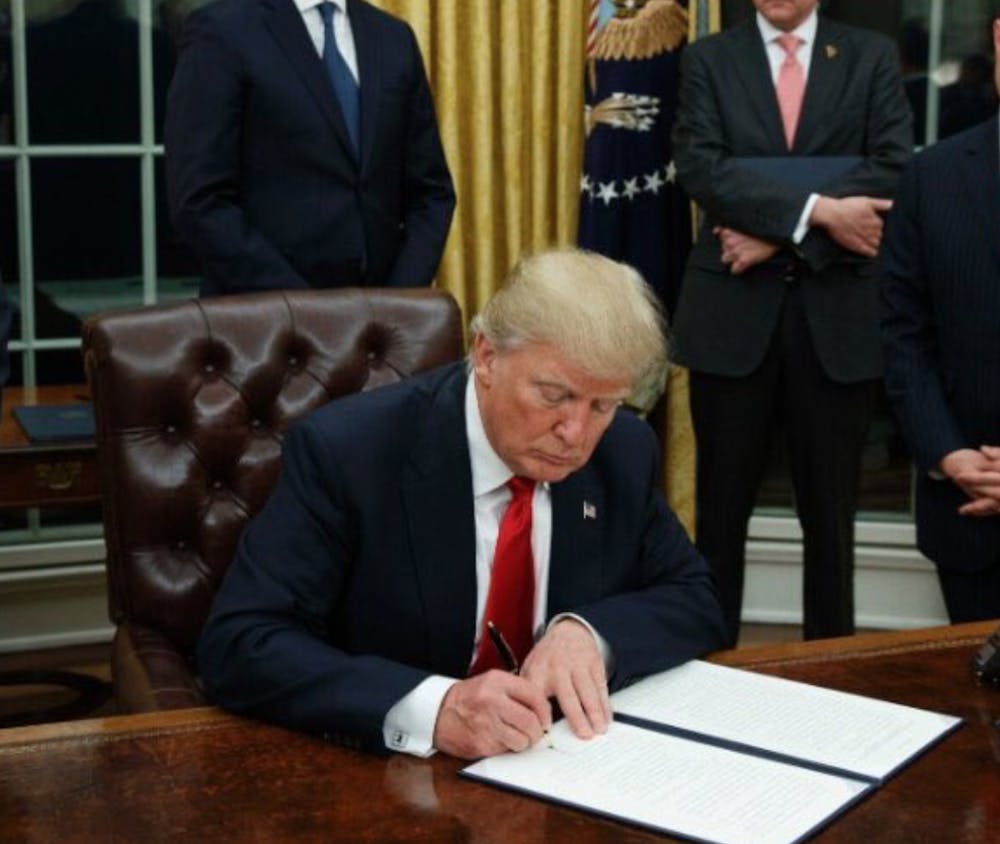By Olivia Rizzo
Staff Writer
Three days after his inauguration, President Donald Trump signed an executive order to withdraw from the negotiations of the the Trans-Pacific Partnership.
The trade deal covered 40 percent of the world’s economy and was negotiated in 2015 by 11 nations, including the U.S., Japan, Malaysia, Australia, Canada and Mexico, according to BBC.
The TPP’s aim was to strengthen economic ties and boost growth, particularly by reducing tariffs. Other measures included enforcing labor and environmental standards, copyrights, patents and other legal protections, BBC reported.
"Great thing for the American worker what we just did," Trump said as he canceled America’s involvement in the deal, according to BBC.
During his campaign, Trump vowed to withdraw the U.S. from the TPP, as he argued that it was harmful to American workers and the manufacturing industry, the Washington Post reported.
According to CNN, the withdrawal from TPP serves as a sign to Democrats and foreign leaders that Trump intends to keep his campaign promises.
Former President Barack Obama negotiated the TPP, but it was never ratified and was not expected to pass in Congress, CNN reported.
The withdrawal will have immediate effects on U.S. economic policies, and it indicates how trade will differ under the Trump administration, according to CNN.
Trump’s decision to end the partnership with an executive action underscores how different he is from his Republican predecessors who embraced free trade and open markets, according to the Washington Post.

President Donald Trump signed an executive order to withdraw from the negotiations of the the Trans-Pacific Partnership (envato elements).
Those in favor of the TPP see it as a way to reassert American influence in Asia and create balance against China’s rising economic power, the Washington Post reported.
Sen. Bernie Sanders of Vermont campaigned harshly against the TPP during his run in the Democratic primary.
According to BBC, Sanders has said similar trade deals have been a disaster and have cost millions of jobs.
With the U.S. no longer a part of the trade deal, China now has the opportunity to redirect Asian trade toward Beijing with its proposed Regional Comprehensive Economic Partnership, according to the Washington Post.
China’s trade deal would reduce tariffs, but does not enforce environmental and labor standards like the TPP, according to the Washington Post.










